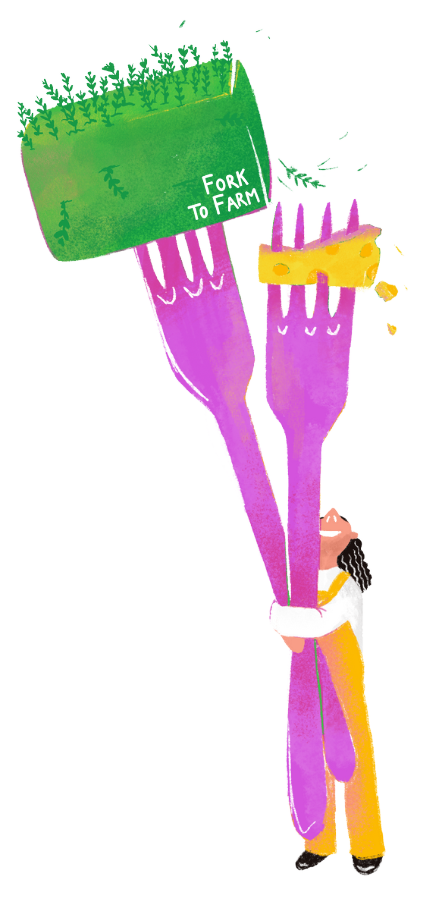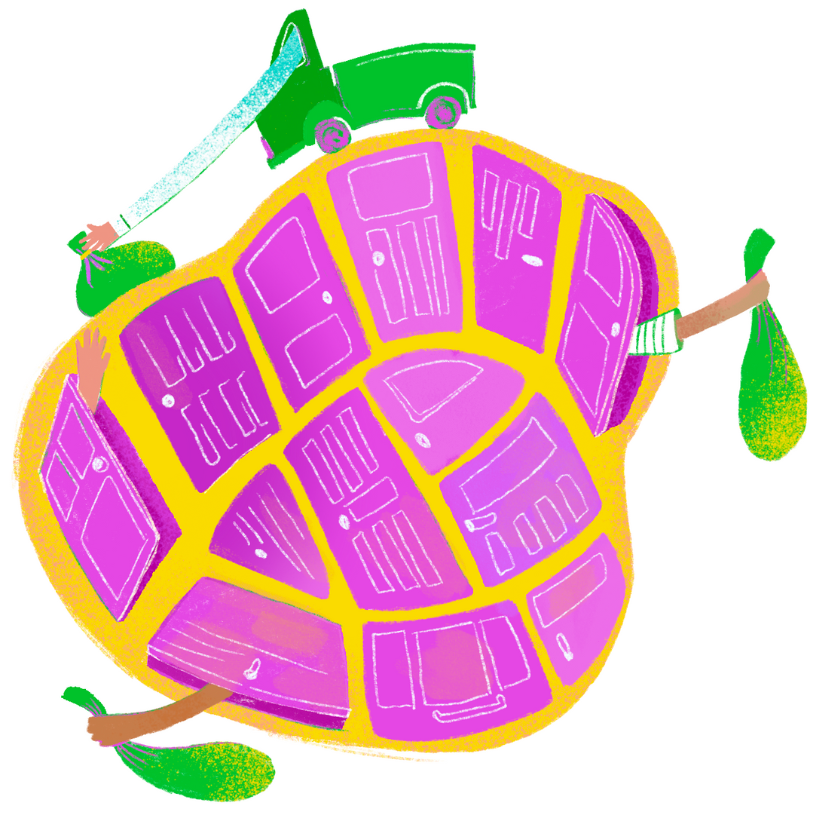
Adressing the EU’s bio-waste problem, from #ForkToFarm
A quick banana on the go. The core of the pepper you had in your dinner. That last slice of pizza you couldn’t manage last night…
Food waste of some sort is inevitable. Yet the latest UN data states that globally, we waste 79 kg of food per person per year. That is the equivalent of at least one billion meals of edible food being wasted in households worldwide every single day.
But there is some saving grace. If we capture this food waste separately from other household waste streams, we can easily turn it into compost to help feed our soil with much-needed nutrients or use it for generating energy. Sounds good, right?

If only it was that easy. The latest data suggests only 18% of biodegradable waste within the EU is currently being captured and treated effectively. That means a staggering 82% of food and garden waste, some of the easiest and cheapest materials to ‘recycle,’ are instead ending up in European landfills and incinerators.
So that banana peel left in a street bin, or the coffee grounds generated by your local coffee shop, is most likely ending up in a landfill, where it releases harmful methane into the atmosphere as it decomposes, or an incinerator, where it mixes with other materials to pollute the air and land around each site.
It doesn’t have to be like this – and honestly, it shouldn’t.
From 1 January 2024, all EU Member States are required to offer the service of separately collecting bio-waste (food and garden waste) to all citizens & businesses. Or at least to those who don’t do their own composting. Yet sadly, this is not being enforced equally across all of the EU.
This is a massive problem for many reasons. From the vast amounts of methane that are emitted from organics in landfills (due to a lack of enforcement of a pre-treatment obligation within the EU) to the lack of available fertiliser to improve European soil health – getting bio-waste out of the residual waste and into composting or anaerobic digestion plants is a move that can bring many environmental, economic and social benefits.
And yet, we see a worrying trend from European municipalities today. Increasingly, cities are opting for compliance with the new regulation by introducing the cheapest and easiest option – putting large open street bins out for bio-waste. This is despite clear data showcasing how poor and ineffective these systems are.
Even where door-to-door collection is offered, it is not always enforced properly. For example, in Germany, a long-time recycling champion of Europe, research shows that collectively 30% of all districts and cities offer either no or voluntary only bio-waste collection.
Without action now, these models could become embedded into European municipal systems, which would severely restrict our progress towards critical circular economy and climate goals.
This is why in 2024, Zero Waste Europe is launching the #ForkToFarm campaign. We’re launching this 100 days since the new regulation came into force, showcasing the lack of compliance across much of Europe.
 With this campaign, we aim to change the status quo for bio-waste in Europe. We want to ensure that municipalities have the right knowledge, support and resources to make sure that food waste generated by households and businesses is captured and managed properly. So that we can tackle rising methane emissions from the waste sector in Europe, drastically reduce the quantity of residual waste produced and drastically increase the quantity of viable soil fertiliser available to local communities
With this campaign, we aim to change the status quo for bio-waste in Europe. We want to ensure that municipalities have the right knowledge, support and resources to make sure that food waste generated by households and businesses is captured and managed properly. So that we can tackle rising methane emissions from the waste sector in Europe, drastically reduce the quantity of residual waste produced and drastically increase the quantity of viable soil fertiliser available to local communities
We will do this by working with our members and partners to collectively raise awareness on how to properly collect and manage bio-waste at the local level, showcasing the many best practices that exist across a diverse range of cities today. We will provide technical assistance to support municipalities to implement these systems properly. And finally, we will create clear guidance for policymakers to follow to ensure that the correct enabling conditions – whether economic, legal or cultural – are in place to allow these systems to perform effectively.
Join the discussion and get involved via the hashtag #ForkToFarm today!
